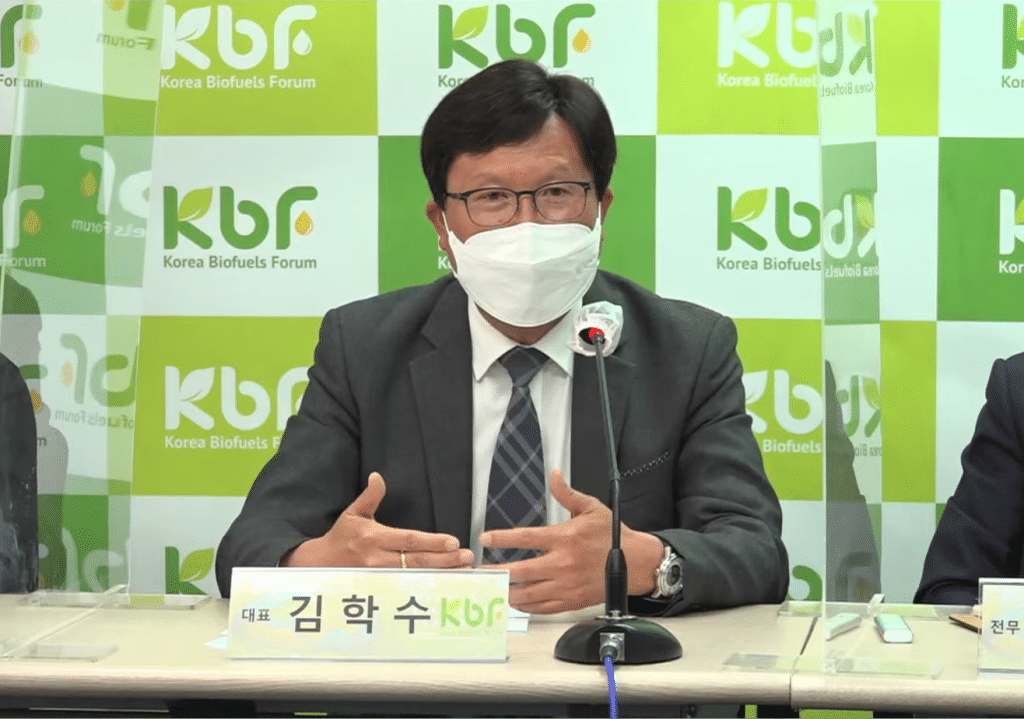The U.S. Grains Council (USGC) emphasized ethanol as one of the most effective transportation fuels for achieving South Korea’s carbon neutrality goals by 2050 during the Carbon Neutral Symposium held there on May 27.
“Bioethanol can smoothly bridge the transition from vehicles with internal combustion engines to eco-friendly mobility, helping Korea make a soft landing on carbon neutrality,” said Haksoo Kim, USGC director in South Korea. “Now is the time to shift our mindset.”
Many other countries have committed to greenhouse gas emission (GHG) reductions under the Paris Agreement and more than 60 have introduced ethanol fuel policies to help meet those commitments. Kim has said Korea, that relies heavily on smokestack industry and is the 12th largest GHG emitter, will continue to feel pressure to comply with the new global order.
Use of bioethanol fuel is a global trend, and with a stronger drive toward carbon neutrality, more countries have initiated new bioethanol fuel policies or expanded existing programs. In Korea, the Council sees a way that bioethanol fuel can bridge the gap between internal combustion engine vehicles and future driving options.
The Council’s key message offered by Kim was promoted online and offline through 15 major Korean media outlets and by energy and climate change experts in the country.
Ahead of the 2021 P4G Seoul Summit hosted by the Republic of Korea and a global acceleration event for market-based partnerships in developing countries, Kim’s presentation and the symposium provided a valuable opportunity to educate Korean consumers and experts who lack information about bioethanol. The Korean government has said it is looking to expand the extent of carbon reduction by 2030 and reach carbon neutrality by 2050.
During the symposium, which boasted more than 200 bioenergy experts participating online, officials from the Ministry of Trade, Industry and Energy, the Ministry of Environment, the Carbon Neutrality Committee and bioenergy-related industry experts presented and joined panel discussions on the government’s policy direction and the industry’s action plans to realize carbon neutrality in transportation fuel and power generation sectors.
In his comments, Kim reminded Korean government officials about the benefits of bioethanol blending as they continue to make decisions to meet their environmental commitments.
“On top of the current plan for expanding the use of biodiesel to five percent, the government needs to introduce policies requiring active use of fuels mixed with bioethanol, as well,” Kim said.
As the fourth-largest market for U.S. ethanol – mostly for industrial uses, South Korea set a new import record in 2019/2020, increasing purchases year-over-year to roughly 113 million gallons, equal to 40.1 million bushels of corn.
Learn more about the Council’s efforts to promote ethanol in South Korea.
About The U.S. Grains Council
The U.S. Grains Council develops export markets for U.S. barley, corn, sorghum and related products including distiller’s dried grains with solubles (DDGS) and ethanol. With full-time presence in 28 locations, the Council operates programs in more than 50 countries and the European Union. The Council believes exports are vital to global economic development and to U.S. agriculture’s profitability. Detailed information about the Council and its programs is online at www.grains.org.

